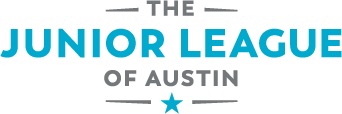Getting Your Foot in the Door – Resume Tips and Tricks

Whether you are looking for a new job or need to update your job experience, resumes are important. For many of us, a resume is an ever-changing document detailing big wins. While we are all so much more than what is on a single document, a resume does play an important role in the job-hunting process.
As a lawyer, I have gone through brutal edits on my own resume. I have met with mentors and career departments. I have had to change my resume again and again. I have learned the hard way that a poorly formatted resume can cost you an opportunity. But with all the editing, I have gained tidbits of information. In the spirit of The Junior League of Austin’s Training and Education month, now is the perfect time to try working on resume building skills. Below are some of the best resume tips my own mentors and career counselors have shared with me.
1. The Resume Gets You the Interview
My career counselor once told me: “You need the resume to get you the interview. After that, you can take the lead.” The resume is what hiring managers use to figure out their first impression of you. It’s what is used to make sure all the necessary boxes are checked—the thing that gets your foot in the door. It cannot tell the whole story of any job or experience, but it can be a tool to determine if you meet the basic requirements of a job posting. For example, if a job posting has any licensure requirements, those requirements should be listed in your resume. Once you get into the interview, you can expand on your experiences and show the employer your personality. Until then, let your resume show that you meet any requirements and have the relevant experience for the job you are applying for.
2. Realistically Limit Your Pages
We have all heard the crazy statistic that a hiring manager spends mere seconds reviewing an applicant’s resume. Because of this, try to limit your resume to one page. Mentors have told me that a second page should only ever be used if you are years into your career. Otherwise, only the most relevant experience should be listed. One way I help myself determine what experience to include is to ask myself this: If someone were to call my old job, would my old job be able to speak about me? If it’s a job from 10 years ago or a job I only spent a few months working at, the answer is likely no. Save these jobs for additional examples and information to provide during your interview, if needed.
3. Numbers, Numbers, Numbers
A page filled with words is easy to scan over, so let yourself stand out by using numbers. Numbers are a great way to show your impact and success at a job, while showcasing your experience. Examples include: “15 years of Human Resources support for 3 different companies” or “10 state grants funded through applications compiled and submitted in my role as grant writer.”
4. Keep a List of Important Projects and Milestones

At every job, keep a list of the important projects and milestones you have accomplished. This is particularly important as we move from job to job since we can easily forget specifics about what we worked on in each position. This list will not only be handy when you prepare for an interview, but it will allow you to have a set of experiences to pick from when reviewing a job posting. It will also be helpful when writing about particular experiences in a cover letter.
Even when you are applying for a job that differs from your others, a list will help you see patterns. For example, a job may not care about the motions I have argued, but from looking at my list it is clear I have an abundance of experience with public speaking. Then in an interview, I can expand on how a particular experience may help me in the job I am applying for, even if it is not exactly in line with the job.
5. Lay the Groundwork with Your Resume
Your resume shouldn’t be so descriptive that it leaves you with nothing to write about in your cover letter. Your cover letter is an expansion of a few experiences. Let your resume be the preview to your cover letter. For example, my resume may mention arguing motions. My cover letter can discuss specific examples of motions argued, and how that strength will apply to the job I am applying for. Letting your resume preview your cover letter allows you to have a coherent job application package.
Writing a resume is trial and error. I hope these tips will help one of you like they have helped me!
 About the Writer: Mandy Romenesko is in her third year with The Junior League of Austin. Her favorite volunteer activity is Food In Tummies (FIT). In her spare time, she can be found listening to true crime podcasts, spending time with her two rescue dogs, and watching reality TV.
About the Writer: Mandy Romenesko is in her third year with The Junior League of Austin. Her favorite volunteer activity is Food In Tummies (FIT). In her spare time, she can be found listening to true crime podcasts, spending time with her two rescue dogs, and watching reality TV.



